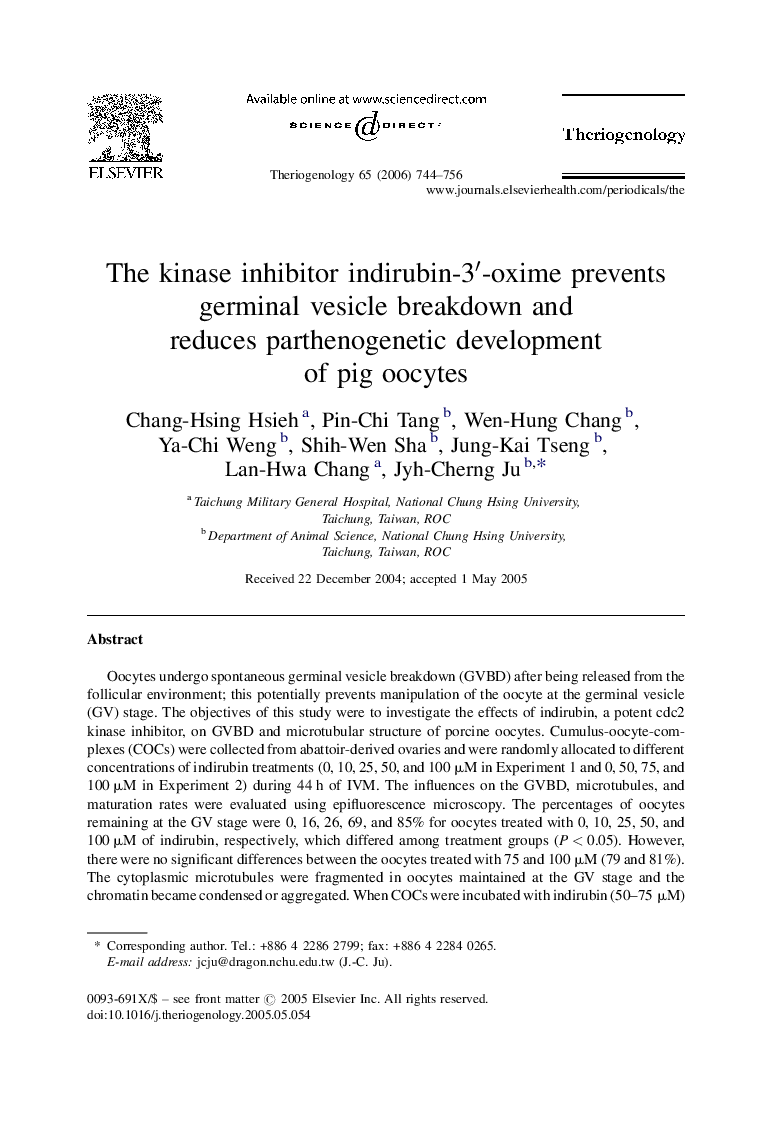| Article ID | Journal | Published Year | Pages | File Type |
|---|---|---|---|---|
| 2098368 | Theriogenology | 2006 | 13 Pages |
Oocytes undergo spontaneous germinal vesicle breakdown (GVBD) after being released from the follicular environment; this potentially prevents manipulation of the oocyte at the germinal vesicle (GV) stage. The objectives of this study were to investigate the effects of indirubin, a potent cdc2 kinase inhibitor, on GVBD and microtubular structure of porcine oocytes. Cumulus-oocyte-complexes (COCs) were collected from abattoir-derived ovaries and were randomly allocated to different concentrations of indirubin treatments (0, 10, 25, 50, and 100 μM in Experiment 1 and 0, 50, 75, and 100 μM in Experiment 2) during 44 h of IVM. The influences on the GVBD, microtubules, and maturation rates were evaluated using epifluorescence microscopy. The percentages of oocytes remaining at the GV stage were 0, 16, 26, 69, and 85% for oocytes treated with 0, 10, 25, 50, and 100 μM of indirubin, respectively, which differed among treatment groups (P < 0.05). However, there were no significant differences between the oocytes treated with 75 and 100 μM (79 and 81%). The cytoplasmic microtubules were fragmented in oocytes maintained at the GV stage and the chromatin became condensed or aggregated. When COCs were incubated with indirubin (50–75 μM) for 22 h and then transferred to maturation medium for 44 h (Experiments 3–5), the percentages of oocytes reaching the metaphase II stage were generally higher than when the COCs were cultured in the presence of the drug for 44 h (62–65% versus 44–46%). However, the parthenogenetic development of the oocytes in Experiment 6 was reduced significantly in drug-treated oocytes. In summary, treatment with 50–75 μM of indirubin effectively prevented GVBD in porcine oocytes, but the developmental competence of the oocytes was compromised.
